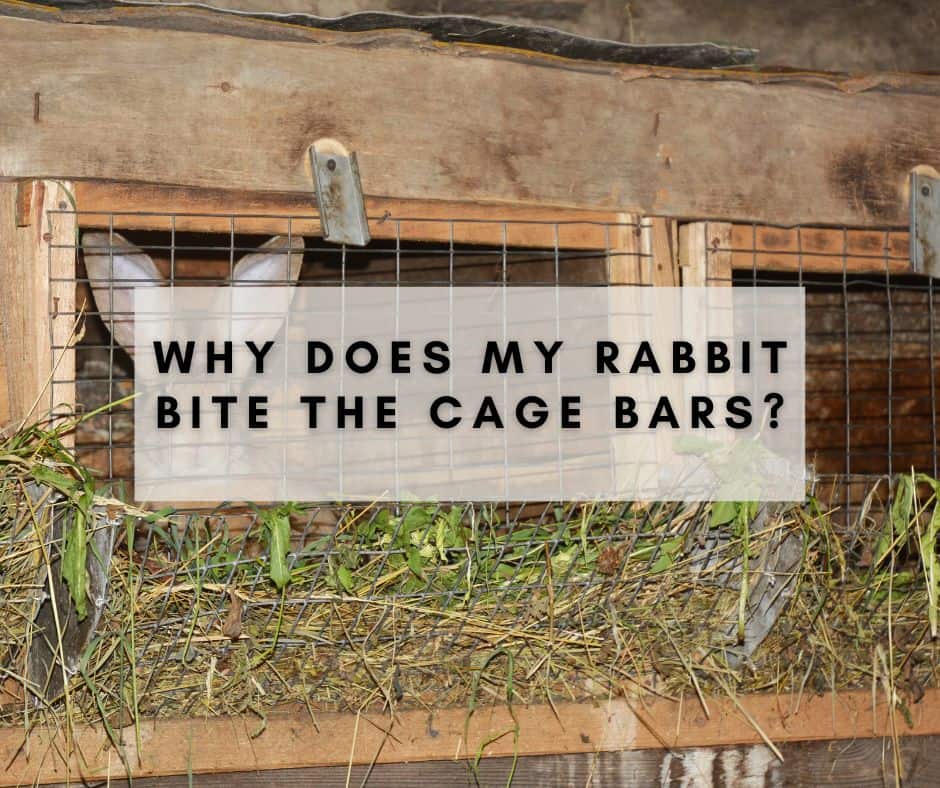Rabbits are adorable pets that require proper care to ensure their well-being. One of the most common questions that rabbit owners ask is whether they should cover their rabbit’s cage at night. The answer to this question is not straightforward and depends on various factors.
Covering a rabbit’s cage at night can provide a sense of security and privacy for the animal. It can also help to regulate the temperature and reduce the amount of light that enters the cage, which can be beneficial for rabbits that are sensitive to light. However, it’s essential to consider the type of cover used and the rabbit’s individual needs before deciding whether to cover the cage at night.
Contents
Why Covering a Rabbit’s Cage at Night is Important
Rabbits are crepuscular animals, which means they are most active during dawn and dusk. During the night, they need a secure, warm, and comfortable environment to rest and sleep. Covering a rabbit’s cage at night provides several benefits, including temperature control, security and protection, comfort, and sleep.
Temperature Control
Covering a rabbit’s cage at night can help maintain a warm temperature in the cage, especially during the winter months. Domestic rabbits are sensitive to cold temperatures and can suffer from respiratory problems if exposed to chilly drafts. By covering the cage with a towel or a tarp, the rabbit can retain warmth and stay comfortable throughout the night.
Security and Protection
Covering a rabbit’s cage at night can also provide security and protection from predators. Rabbits are prey animals and can easily become the target of other animals, such as raccoons, foxes, or even cats. A covered cage can help prevent predators from seeing the rabbit and trying to attack it.
Comfort and Sleep
Covering a rabbit’s cage at night can also create a comfortable and peaceful environment for the rabbit to rest and sleep. Rabbits are sensitive to light and noise, and covering the cage can help reduce any disturbances that may upset or stress the rabbit. Additionally, a covered cage can create a dark and quiet space that mimics a burrow, which is a natural sleeping environment for rabbits.
When covering a rabbit’s cage, it is important to ensure proper ventilation to prevent any respiratory problems. The cage should be well-ventilated and have enough space for the rabbit to move around and exercise. It is also essential to use safe and chew-proof materials to cover the cage, such as a towel or a cardboard box.
Pros and Cons of Covering a Rabbit’s Cage at Night
Pros
Covering a rabbit’s cage at night can provide several benefits. Some of the advantages of covering a rabbit’s cage at night are:
- Warmth: Covering the cage can help keep the rabbit warm during cold nights.
- Security: Rabbits can be easily frightened by loud noises or sudden movements. Covering the cage can make them feel more secure and protected.
- Darkness: Rabbits are crepuscular animals, which means they are most active during dawn and dusk. Covering the cage can create a dark environment that can help rabbits sleep better during the night.
Cons
While covering a rabbit’s cage at night can provide some benefits, there are also some drawbacks to consider. Some of the disadvantages of covering a rabbit’s cage at night are:
- Overheating: If the cage is covered with a material that does not allow proper ventilation, it can cause the temperature inside the cage to rise, leading to overheating and discomfort for the rabbit.
- Personality: Not all rabbits like to be covered at night. Some rabbits may feel anxious or stressed if they are unable to see their surroundings.
- Needs: Rabbits have specific needs when it comes to their living environment. Covering the cage at night may not be suitable for all rabbits, especially those that require a specific temperature or humidity level.
Covering a rabbit’s cage at night can have both advantages and disadvantages. It is essential to consider the rabbit’s personality and needs before deciding if covering the cage is the right choice. If you choose to cover the cage, make sure to use a material that allows proper ventilation to prevent overheating.

Alternatives to Covering a Rabbit’s Cage at Night
Lighting
One alternative to covering a rabbit’s cage at night is to provide adequate lighting. Rabbits are crepuscular animals, meaning they are most active during dawn and dusk. Providing a low-level night light can help your rabbit feel more secure and less stressed during the night. A night light will also allow you to check on your rabbit without disturbing them.
Ventilation
It is important to ensure that your rabbit’s cage has proper ventilation, especially if you choose not to cover it at night. Poor ventilation can lead to respiratory problems, which can be fatal for rabbits. Make sure that your rabbit’s cage is not located in a drafty area, but still has adequate airflow.
Bedding
Another alternative to covering a rabbit’s cage at night is to provide extra bedding. Rabbits are sensitive to temperature changes, and providing extra bedding can help keep them warm during the night. However, it is important to note that too much bedding can be a choking hazard, so make sure to monitor your rabbit’s behavior and remove any excess bedding if necessary.
Tarp or Blanket
If you are concerned about drafts or chilly temperatures, you can use a tarp or blanket to cover your rabbit’s cage. However, it is important to make sure that the tarp or blanket is not touching the cage, as this can create a choking hazard. Additionally, make sure that the tarp or blanket is securely fastened and cannot be pulled into the cage by your rabbit.
Chew and Safety
It is important to ensure that any alternative you choose to cover your rabbit’s cage at night is safe for your rabbit. Rabbits are notorious chewers, and any loose or dangling material can be a choking hazard. Make sure that any bedding, tarp, or blanket is securely fastened and cannot be pulled into the cage by your rabbit. Additionally, make sure that any lighting or electrical cords are out of reach of your rabbit to prevent electrocution.
Overall, there are several alternatives to covering a rabbit’s cage at night that can help keep your rabbit safe and comfortable. By providing adequate lighting, ventilation, bedding, and a secure tarp or blanket, you can ensure that your rabbit is protected from drafts and chilly temperatures without creating any safety hazards.
Conclusion
In conclusion, covering a rabbit’s cage at night is a personal preference and depends on the individual rabbit’s needs and behavior. Some rabbits may feel more secure and comfortable with a covered cage, while others may become stressed or anxious.
It is important to consider the environment and temperature of the room where the rabbit is kept. If the room is drafty or cold, covering the cage can provide warmth and insulation. However, if the room is warm and stuffy, covering the cage can lead to overheating and discomfort for the rabbit.
Additionally, rabbits are crepuscular animals, meaning they are most active during dawn and dusk. Covering the cage can disrupt their natural sleep-wake cycle and cause confusion and stress.
Overall, it is recommended to observe the rabbit’s behavior and adjust the cage cover accordingly. Providing a comfortable and safe environment is crucial for the rabbit’s well-being.





